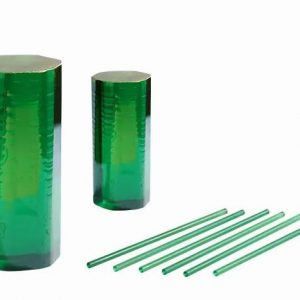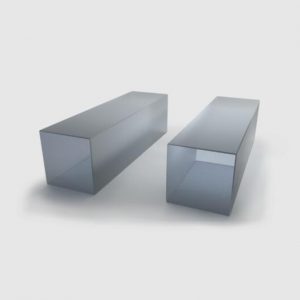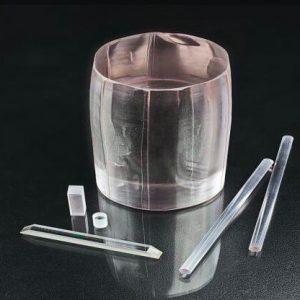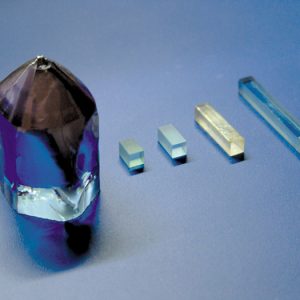- Solid State Laser
- Semiconductor Laser
- DPSS laser
- Gas Laser
- Fiber Laser
- Fiber Coupled Laser(MM)
- Fiber Coupled Laser(SM)
- Ultrafast laser
- Femtosecond Laser
- Picosecond Laser
- Pulsed Laser
- Q-switched Laser
- Raman Laser
- Narrow Linewidth Fiber Laser
- Wavelength Tunable Laser
- Laser Diode
- Laser Module
- Pigtailed Laser
- DFB Laser
- DBR Laser
- SLED Laser
- VCSEL Laser
Cr:YAG(Chromium-doped yttrium aluminum garnet) – Passively Q-switched Crystal – Customized Products
Product ID: 6647
$100
Cr:YAG(Chromium-doped yttrium aluminum garnet) – Passively Q-switched Crystal – Customized Products
Cr:YAG crystal, also known as chromium-doped yttrium aluminum garnet crystal, with the chemical formula of Cr: Y3Al5O12. It is a relatively excellent Q-switched crystal product.
It can be used not only as a Q-switch, but also as a gain medium because of its excellent physical and chemical properties. It is widely used in the field of passively Q-switched lasers of laser rangefinders, lidar and LIBS systems.
Cr: YAG has the advantages of chemical stability, durability, UV resistance, good thermal conductivity, great damage threshold (>500 mw/cm2) and simple operation. It is surpassing traditional materials such as LIF and organic dyes.
Cr: YAG is an excellent and widely used electro-optical material for passive Q-switched (laser diode or lamp pumped) Nd: YAG, Nd: YLF, Nd: YVO4 and other 0.8~1.2 μm Nd (or Yb) doped lasers. It is also an active medium for CW, pulse or self-mode-locked tunable NIR solid-state lasers. The tunable range is 1340 – 1580 nm and the working wavelength is 950-1100 nm.
The absorption saturation at 1060 nm band can be used in small Nd: YAG oscillators with flashlamp or laser diode pump, instead of dye or lif:f central passive Q-switch, so that Cr4+: YAG crystal can achieve self mode locking (KML) state. It provides an opportunity to build a laser source with a pulse duration shorter than 100 fs at 1450-1580 nm.
Note:
$100 is a deposit, not the final price of the product. Please contact us for price if needed.
Features of Cr: YAG Crystal
Radiation stability
High thermal conductivity
High damage threshold (> 500 MW/cm2)
Excellent physical and chemical properties
Physical and Chemical Properties
| Attribute | Numerical |
| Chemical Formula | Cr4+:Y3Al5O12 |
| Crystal Structure | cubic – la3d |
| Lattice Constant Å | 12.01 |
| Orientation | [100] or [110] < ±0.5° |
| Mass Density | 4.56 g/cm3 |
| Mohs Hardness | 8.5 |
| Young’s Modulus | 335 GPa |
| Tensile Strength | 2 GPa |
| Melting Point | 1970°C |
| Thermal Conductivity | 0.1213 |
| Specific Heat/(J·g-1·K-1) | 0.59 |
| Thermal Expansion/(10-6 /°C @ 25°C) | 7.8 <111> |
| 7.7 <110> | |
| 8.2 <100> | |
| Thermal Shock Resistance Parameters | 800 W/m |
| Extinction Ratio | 25dB |
| Poisson Ratio | 0.25 |
| Refractive Index @ 1064 nm | 1.83 |
| Charge Compensated Ion | Ca2+, Mg2+ |
Optical Properties
| Attribute | Numerical |
| Optical Density | 0.1 to 0.8 |
| Fluorescence Lifetime | 3.4μs |
| Concentration | 0.5 mol % ~ 3 mol % |
| Emission Wavelength | 1350 nm ~ 1600 nm |
| Absorption Coefficient | 1.0 cm-1~ 7 cm-1 |
| Ground State Absorption Cross-section | 4.3×10-18 cm2 |
| Emission Absorption Cross-section | 8.2×10-19 cm2 |
| Transmission | 10% to 90% |
| Coating | AR≤ 0.2% @1064nm |
| Damage Threshold | > 500 MW / cm2 |
Polishing
| Attribute | Numerical |
| Orientation Tolerance | < 0.5° |
| Thickness/Diameter Tolerance | ±0.05 mm |
| Surface Flatness | <λ/8@632 nm |
| Wavefront Distortion | <λ/4@632 nm |
| Surface Quality | 5-Oct |
| Parallelism | 10〞 |
| Perpendicularity | 5ˊ |
| Clear Aperture | >90% |
| Chamfer | <0.1×45° |
| HR Coating | <= 0.2% (@ 1340nm) |
| Biggest Size | 2*2-15*15 mm×20mm |
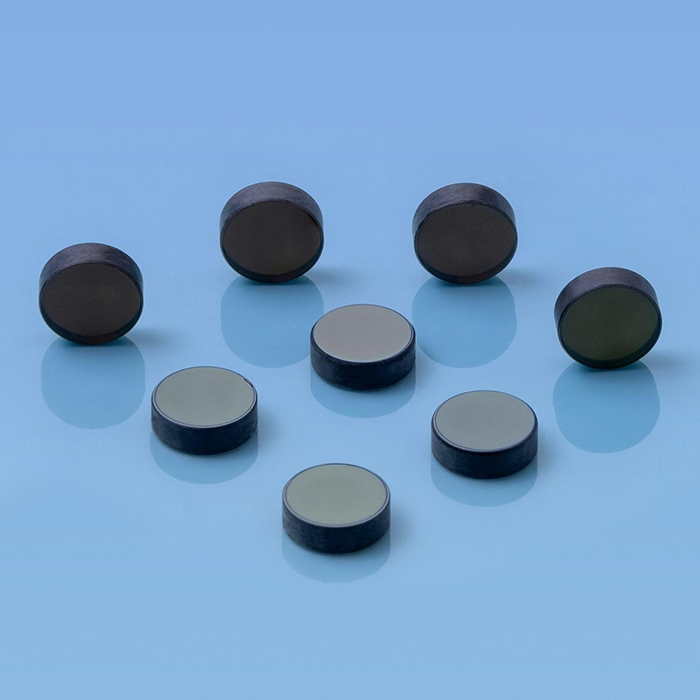
.jpg)
